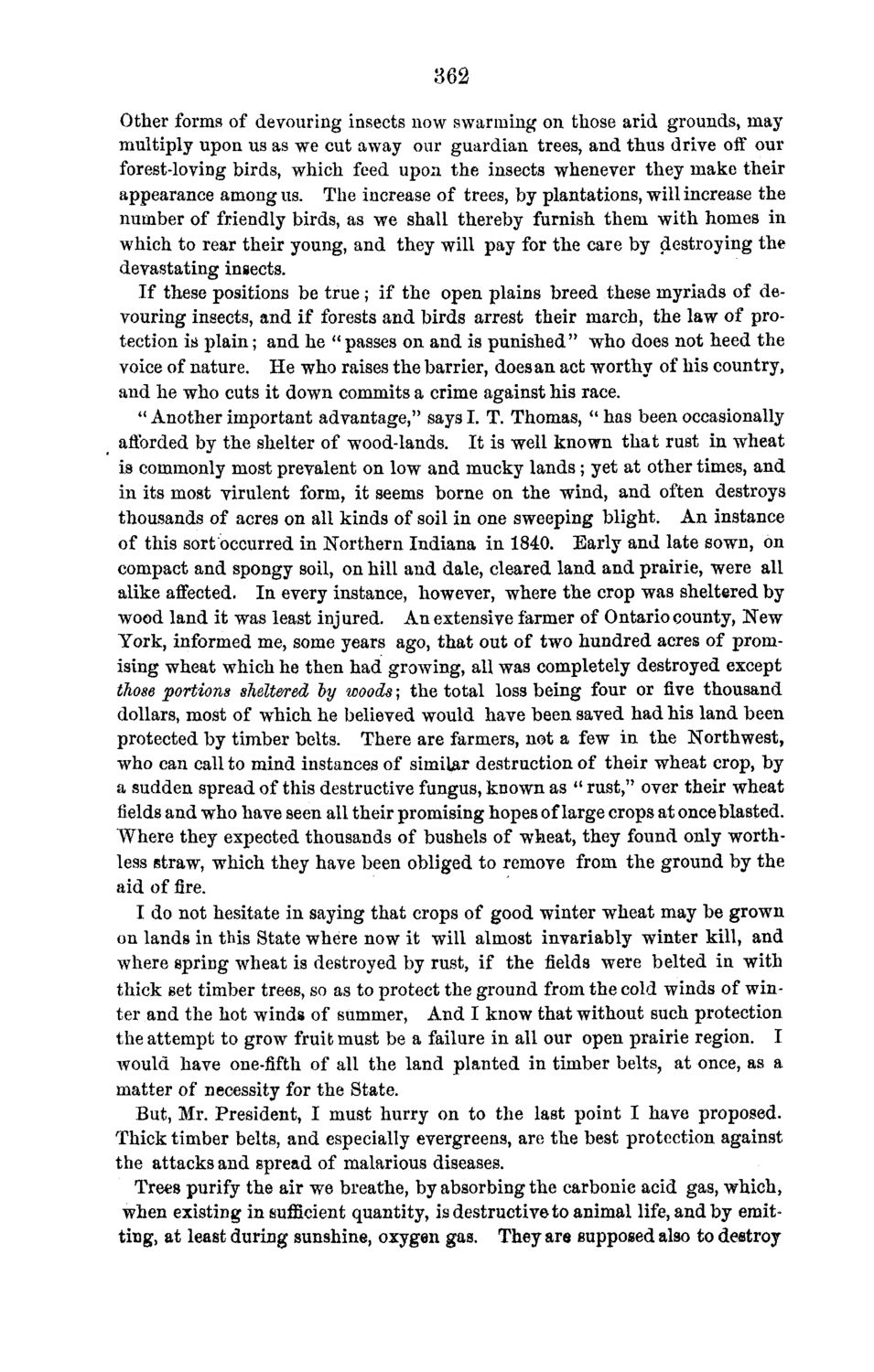| |
| |
Caption: Board of Trustees Minutes - 1870
This is a reduced-resolution page image for fast online browsing.

EXTRACTED TEXT FROM PAGE:
362 Other forms of devouring insects now swarming on those arid grounds, may multiply upon us as we cut away our guardian trees, and thus drive off our forest-loving birds, which feed upon the insects whenever they make their appearance among us. The increase of trees, by plantations, will increase the number of friendly birds, as we shall thereby furnish them with homes in which to rear their young, and they will pay for the care by destroying the devastating insects. If these positions be true ; if the open plains breed these myriads of devouring insects, and if forests and birds arrest their march, the law of protection is plain; and he " passes on and is punished" who does not heed the voice of nature. He who raises the barrier, does an act worthy of his country, and he who cuts it down commits a crime against his race. " Another important advantage," says I. T. Thomas, " has been occasionally afforded by the shelter of wood-lands. It is well known that rust in wheat is commonly most prevalent on low and mucky lands; yet at other times, and in its most virulent form, it seems borne on the wind, and often destroys thousands of acres on all kinds of soil in one sweeping blight. An instance of this sort occurred in Northern Indiana in 1840. Early and late sown, on compact and spongy soil, on hill and dale, cleared land and prairie, were all alike affected. In every instance, however, where the crop was sheltered by wood land it was least injured. An extensive farmer of Ontario county, New York, informed me, some years ago, that out of two hundred acres of promising wheat which he then had growing, all was completely destroyed except those portions sheltered ly woods; the total loss being four or five thousand dollars, most of which he believed would have been saved had his land been protected by timber belts. There are farmers, not a few in the Northwest, who can call to mind instances of similar destruction of their wheat crop, by a sudden spread of this destructive fungus, known as " rust," over their wheat fields and who have seen all their promising hopes of large crops at once blasted. Where they expected thousands of bushels of wheat, they found only worthless straw, which they have been obliged to remove from the ground by the aid of fire. I do not hesitate in saying that crops of good winter wheat may be grown on lands in this State where now it will almost invariably winter kill, and where spring wheat is destroyed by rust, if the fields were belted in with thick set timber trees, so as to protect the ground from the cold winds of winter and the hot winds of summer, And I know that without such protection the attempt to grow fruit must be a failure in all our open prairie region. I would have one-fifth of all the land planted in timber belts, at once, as a matter of necessity for the State. But, Mr. President, I must hurry on to the last point I have proposed. Thick timber belts, and especially evergreens, are the best protection against the attacks and spread of malarious diseases. Trees purify the air we breathe, by absorbing the carbonic acid gas, which, when existing in suflicient quantity, is destructive to animal life, and by emitting, at least during sunshine, oxygen gas. They are supposed also to destroy
| |